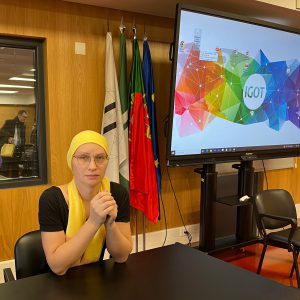“Transgender Russia: the rise and fall of trans-rights in an autocracy”
When? Tuesday 28th January, 15.15 – 17.00
Where? Seminar room floor 9 or online: https://mau-se.zoom.us/j/69268165545
Description: As many as 71% of the world population in 2023 lived under authoritarian rule, and yet a search with keywords “authoritarianism” and “transgender” in scientific databases yields very few articles. One reason for that is the overwhelming focus of transgender studies on North America. Another is conflation of trans issues with LGBT. In her lecture, Yana Kirey-Sitnikova will argue that trans rights have their own dynamics, which should be juxtaposed to the trends in democratization or autocratization. The first part will be devoted to Yana’s recent article “‘You should care by prohibiting all this obscenity’: a public policy analysis of the Russian law banning medical and legal transition for transgender people” (Post-Soviet Affairs) describing the 2023 Russian law banning “the change of sex in humans” and its prehistory. While the original article uses the Authoritarian Gender Equality Policy Making framework, in the lecture, Yana will apply the Advocacy Coalitions Framework and Punctuated Equilibrium Theory to the same data to show that the process included many semi-democratic elements, which goes against the common sense that the members of the Russian State Duma have little agency compared to the executive branch. In the second part of the lecture, Yana will present preliminary findings on the Soviet period, which form the core of her upcoming book “Transgender Russia: the rise and fall of trans rights in an autocracy”. The data being scarce on what we now call “trans”, we are obliged to deduce the situation of Soviet transvestites and transsexuals mostly from publications devoted to intersex individuals and homosexuals. While intersex people had access to legal gender recognition and medical care even in the darkest years of Soviet totalitarianism, male homosexuals were persecuted, and trans people probably balanced somewhere in-between. Extremely interesting in this regard is the case of a “transvestite with homosexual inclinations” K.K.D., whose female gender identity was recognized by the authorities in Kazan and Moscow. While more archival work needs to be done on this case, it probably dates to the 1940s, i.e. Stalin’s rule, thus demonstrating something different from what we may now think about the lived circumstances under totalitarianism.
Welcome!



